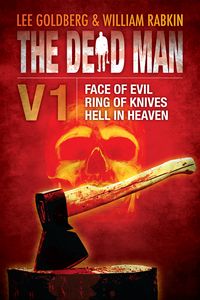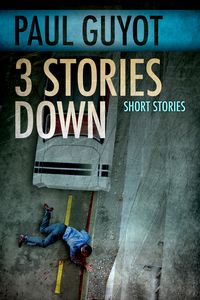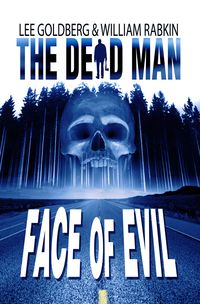Yesterday, I wrote about the apparent demise of Jones Harvest Publishing, huckster Brien Jones' notoriously sleazy vanity press. Today I stumbled on his blog…and his posts are very telling. Here are a few samples…
Yesterday, he wrote a post that began:
Sorry I’ve been AWOL. I got caught up in legal proceedings. Not against ME (for once) but an actual-factual criminal.
A few weeks earlier he wrote, in part:
THIS subject is closest to my heart it will probably not be terribly amusing—ESPECIALLY if you’re underpaid and stuck in a dead-end job with AN ASSHOLE for a BOSS.
Recently I was HORRIFIED TO LEARN that was precisely how my colleagues viewed ME.
THAT’S MY FAULT. As with EVERY rule, law, or responsibility IGNORANCE IS NO EXCUSE. In fact, NOT knowing makes the situation WORSE.
THAT’S NOT how things USED TO BE. If you spent a day working in our office last year you wouldn’t have thought BRIEN JONES was in charge of ANYTHING.
My wife and co-founder Brandy (who remains UNIVERSALLY REVERED) had clearly been at the helm.
Then I stepped in and made a couple VERY BAD DECISIONS. As a result of those decisions what had been a vibrant, happy and even slightly profitable little company augured into the ground…
We can only hope. Also, about a month ago, he wrote, in part:
About once a year I have the following conversation with our attorney.
“Hi counselor, one of our author friends is SUING US.”
[…]So I hope you understand why I don’t go OUT OF MY WAY to sign CONTRACTS. In fact I try to avoid writing ANYTHING down.
[…]Ironically I learned this lesson rather late. During the five years I lived in California I kept a journal. When I moved back TO INDIANA I went straight to Lake of the Woods.
It was there Gramma saw me writing in my big black book. She asked me what it was. I told her it was my daily journal. That’s when that wonderful woman gave me PRICELESS ADVICE I still live by TODAY.
She said, “If you don’t HAVE a journal then THEY CAN’T SUBPOENA IT.”
And a month before that, he wrote about dealing with angry authors:
I don’t know about YOU but the whole time I worked for other people’s companies I had an overwhelming urge to tell rude customers to ‘GO JUMP IN A LAKE!’
Sometimes customers say really mean things to employees. And if that employee was me, I wanted to say mean things right back. But had I responded in any way, that customer might have asked to “speak with my supervisor.” You know what THAT means…
The risk was just too great. I had to remain polite. Otherwise I could have LOST MY JOB! But OH, how I wanted to say something like ‘GO FLY A KITE’ to those JERKS.
Now it’s MY COMPANY and that changes EVERYTHING. Only NOW do I understand the true gravity of the situation–that the wrong response could have dire consequences for everyone.
It really changes your perspective. In fact, no matter how impolite or unreasonable a customer is, I remember it’s critical to remain polite and professional. Right?
I had you going right? RIGHT? DIDN’T I? C’MON I HAD YOU GOING! ADMIT IT!
I say “GO FUCK YOURSELF” at least ONCE A WEEK!
And at MY COMPANY if somebody asks to talk to one of MY PEOPLE’S ‘supervisor’ and they get ME? GOD HELP em’!
We got a call this week from an author I’ll call MARY JONES-DURBIN (because it’s her name) the author of “Words From My Soul.”
THIS IDIOT called to DEMAND the money we were making from selling HER BOOK. Never mind the fact that WE DIDN’T PUBLISH her book, nor EVER HAD ANY COPIES. I listened to one of my people spend 10 MINUTES trying to explain that. I did it in 10 WORDS!
“Are you listening moron? I DARE YOU TO SUE ME!”
That reminds me, of the CONSEQUENCES. Aside from breaking the phone by slamming it too hard, here is the COMPLETE LIST of the consequences in order of DIRENESS.
1. People say mean things about me on the internet.
THAT’S IT! But GOOGLE ME or my company you’ll discover I am a REALLY BAD PERSON.
2. I am not ONLY publishing books in a FIENDISH manner but also the MASTERMIND behind the MADOFF SCANDAL as well as THE BOSTON STRANGLER!
3. It goes without saying I was NOT born in HAWAII!
In fact, one woman created an entire website JUST FOR TRASHING ME! I know! AWESOME RIGHT? You can’t BUY that kind of PUBLICITY!
What a lovely guy. Let's hope Jones Harvest doesn't rise from the dead…and that Brien Jones finds a new way to earn a living that doesn't involve talking senior citizens into dipping into their retirement fund or social security income to "publish" their books.





